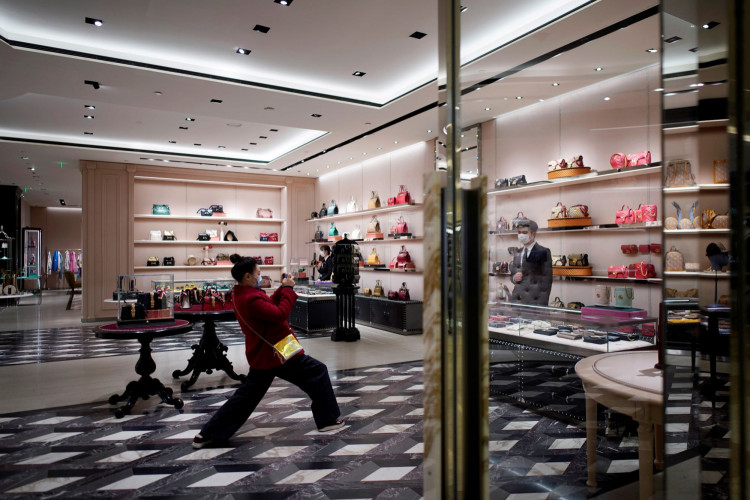Chinese consumers are quickly shifting to buying luxury brands from second-hand, or used, goods shops as the economy slows down, a report says.
While the economy is slowing down and people are reeling from the long-term economic effects of the pandemic and the government's response to it, Chinese citizens are still buying branded goods such as bags from known brands like Gucci, Prada and Burberry.
The thing is, unlike how most consumers did so in the past, today's consumers are buying them used from local second-hand shops, Voice Of America News (VOA) reported.
The used luxury goods market is growing likely due to the cheaper prices as compared to when buying them new. Luxury handbags for women, such as Fendi Baguettes and Prada Messengers, for example, sell for 30% to 40% less compared to when buying them new from stores.
One particular shop proving this growth is used luxury goods marketplace ZZER.
Zhu Tainiqi, owner of ZZER, told VOA that sales in the used goods market is so good and that his business has grown from the previous year. He said there has been a 40% increase in the number of consigners, or people who want to display their products in the store, from last year.
Zhu said there's an increase in both the number of people who want to sell their personally-owned branded items, like Rolex watches or Hermes bags. At the same time, there's also an increase in the number of people expressing their interest in buying used goods in order to save money.
Expected to Grow Even More
China's resale market is expected to grow even more as the economy slows down and people continue to look for ways to enjoy what they like without having to spend a lot of money.
Office worker Wang Jianing, for example, told Reuters that while her budget will be slashed, her cravings won't.
"My consumption will definitely be downgraded [this year], but I still like what I like, and I can't control the desire to buy it," she said.
This kind of thinking is what Zhu believes will cause the resale market to keep growing.
"More and more people are now aware they can sell luxury goods for some money," 33-year-old Zhu said, "and the buyer side is noticing that they can get a great deal."
"They think, 'Why not give it a shot?'" he explained.
Other companies in China have also benefited from the resale market. Businesses such as Feiyu, Plum, and Ponhu reported earning tens of millions in investments in 2020 and 2021-during the pandemic.
This growth in the used goods market should force luxury brands to rethink their approach to consumers, experts say.
Iris Chan, a partner and head of client development at Digital Luxury Group, a market research group, says these brands need to "think about how they're going to handle this (resale) market, and what role they are going to play in the whole process."





